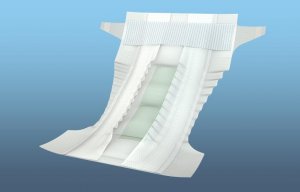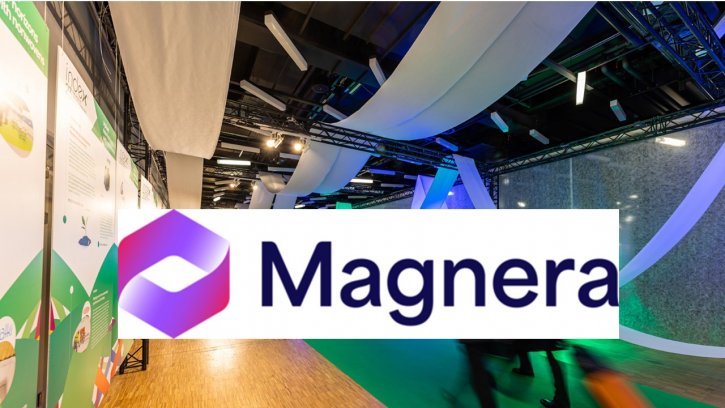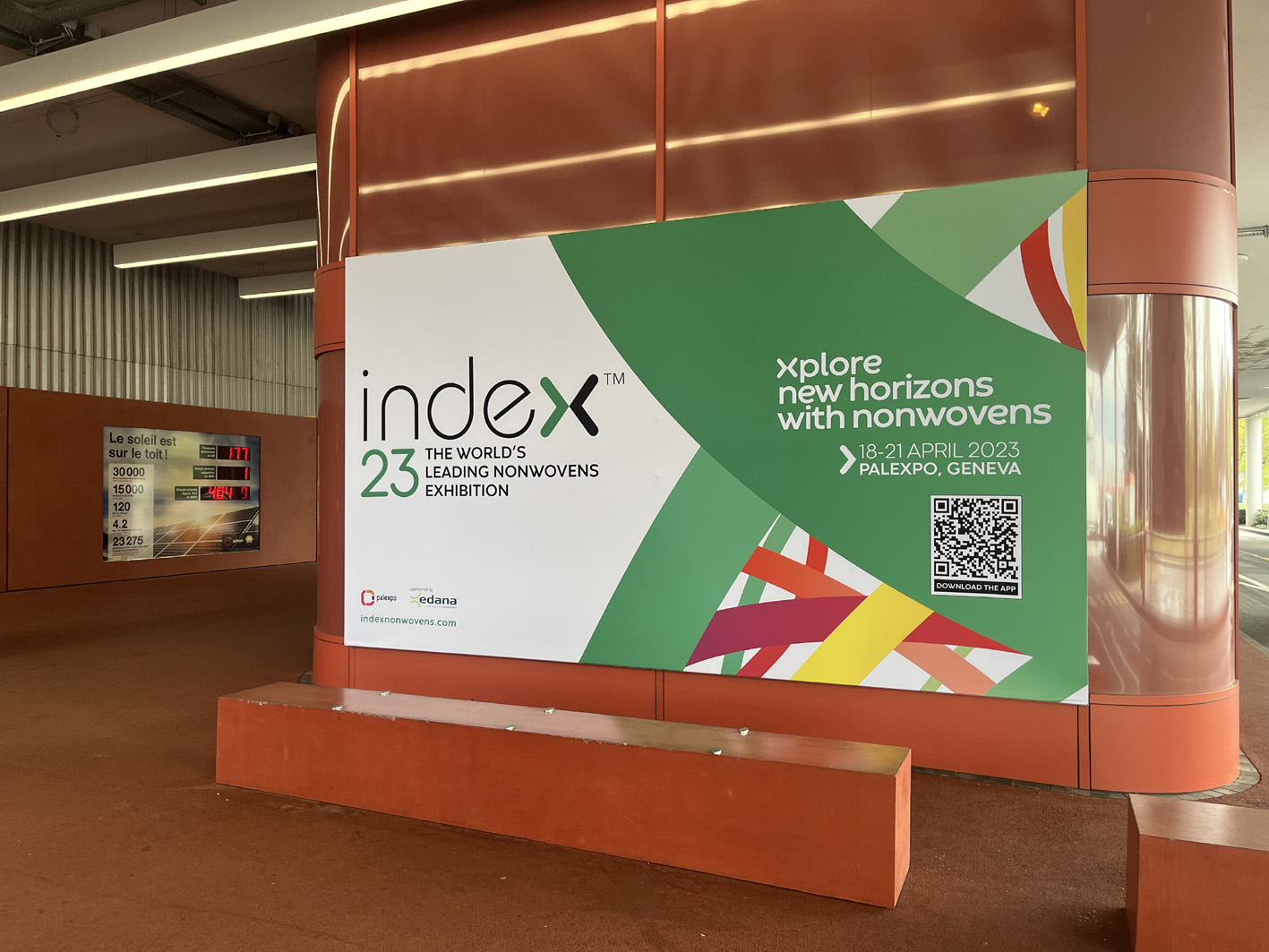
INDA Achievement Awards finalists announced
Merger creates by far the biggest diversified producer of nonwoven fabrics.

25th July 2024
Innovation in Textiles
|
Geneva, Switzerland
Magnera is the new name of the company resulting from the merger of Berry Global’s’s Health, Hygiene and Specialties business (HH&S) with Glatfelter Corporation, which is expected to be completed before the end of 2024.
Magnera will consist of a business with anticipated annual revenues of around $3.6 billion and approximately 8,650 employees, with a base of over 1,000 customers. These will be served from 45 manufacturing sites globally – 23 of them in the Americas, 18 in Europe and four in Asia – with an extremely wide range of proprietary nonwoven fabric technologies.
“By continuously co-creating and innovating with our partners, we will develop original material solutions that make a brighter future possible,” said Curt Begle, president of Berry’s Health Hygiene and Specialties division who will lead Magnera as CEO. “With a breadth of technologies and a passion for what we create, Magnera’s solutions will solve end-user problems every day.”
“The uniting of our organisations creates a premier nonwovens supplier and a global leader in speciality materials,” added Thomas Fahnemann, Glatfelter’s president and CEO. “The combined company will have the scale to accelerate innovation and leverage intellectual property over a large worldwide commercial platform.”

Long history
As detailed in a recent edition of the newsletter promoting the INDEX nonwovens show which next takes place in Geneva, Switzerland, from May 19-22 2026, this merger creates by far the biggest diversified producer of nonwoven fabrics.
Its origins can be significantly traced back to 1992 and the founding of Polymer Group Inc., (PGI) then headquartered in Charleston, South Carolina.

PGI
PGI was formed through the merger of the nonwovens interests of Scott Paper – credited as the first company to sell toilet paper on a roll back in the 1920s – and Mexican spunbond producer Bonlam. A number of Scott innovations continue to be globally successful today, most notably the forerunners of Procter & Gamble’s Pampers baby wipes.
Between 1995 and 1997 PGI acquired the Chicopee wipes division of Johnson and Johnson and spunmelt manufacturers Fitesa North America and Canada’s Dominion Textile Nonwoven, before unravelling in its ambitious aim to consolidate all of these businesses and at the same time pioneer new technologies, filing for bankruptcy protection in 2002.
It bounced back a year later, however, and immediately embarked on a period of aggressive spunmelt expansion, opening new plants in Argentina, China, Colombia, Mexico and the USA.
Moving its headquarters to Charlotte in North Carolina, PGI further established a base in Europe with the acquisition of Spain’s Telsaca-Texnovo in 2009.
In 2011 PGI was then purchased by private equity group Blackstone Partners.
BBA Fiberweb
Over a comparative time period, the nonwoven operations of London, UK-headquartered BBA Group grew to become equally substantial and far reaching through a series of M&As. These included Reemay (USA) and Terram (UK) in the early 1990s, followed by Fiberweb (France) in 1995, Corovin (Germany) in 1996, Korma (Italy) and Bidim (Brazil) in 1997, and Veratec (USA) in 1998.
The acquisition of Germany’s Corovin already made BBA the largest spunmelt nonwovens producer in Europe, a position it consolidated between 1998 and 2003 by installing additional capacity in France, Italy, Germany and Sweden. The company also established joint ventures in Saudi Arabia, South Africa and Thailand.
At the turn of the 21st century, while continuing to invest in new nonwoven capacities globally and make further acquisitions – such as that of Snow Filtration (USA) and AQF Filtration (USA) in 2000, Superior Nonwovens (USA) and Tecnofibra (Italy) in 2003 – BBA Group was looking to focus on its separate Aviation Services business.
Consequently, the nonwovens business, previously known simply as BBA’s Materials Technology division, was renamed Fiberweb in 2003 and after some years of uncertainty, was finally spun-off as a separate company in 2007.
Rapid change
A number of things happened very quickly between 2013 and 2015.
In 2013 PGI succeeded in acquiring Fiberweb to become the world’s largest manufacturer of nonwovens.
A year later, it purchased Brazil’s Providencia, bringing the consolidation of the global spunmelt nonwovens industry for absorbent hygiene products (AHPs) to an unprecedented new level.
In February 2015 it was further announced that PGI would acquire Dounor, a French manufacturer with six spunmelt lines also serving the AHPs industry.
Finally, in July 2015 – having only changed its name to Avintiv a month earlier – PGI was sold to Berry Plastics (now Berry Global) for $2.45 billion.
Prior to the acquisition, Berry had no nonwovens interests, as a manufacturer of plastics and packaging materials. A significant part of its business, however, centres on supplying to the AHPs industry and as Berry HH&S, the business has enjoyed a successful and stable period, achieving sales of $2.2 billion in 2023.
Glatfelter
Glatfelter, now headquartered in Charlotte, North Carolina, meanwhile entered the nonwovens industry in 1998 following the acquisition of German company Schoeller & Hoesch and beginning its transformation into a global nonwoven leader with wetlaid materials for filtration.
With origins dating back to a Pennsylvania paper mill purchased for $14,000 in1863, Glatfelter had been a leading US paper manufacturer since the 1880s and was first publicly listed in 1955.
Its acquisition of Schoeller & Hoesch was followed by that of the wetlaid operations of the UK’s J.R. Crompton in 2006, and four years later the company entered the business of airlaid products for AHPs with the acquisition of Concert Industries, adding manufacturing plants in Canada and Germany.
Engineered materials
In 2018, Glatfelter sold its Specialty Papers business unit as a significant milestone in its strategy of becoming a leading engineered materials company. It also opened a new $90 million state-of-the-art airlaid site in Fort Smith, Arkansas, significantly expanding its airlaid capacity. Glatfelter further acquired Georgia-Pacific’s German nonwovens business during the year.
2021 was another significant year for the company, with the acquisition of Georgia-Pacific’s Mount Holly, North Carolina airlaid manufacturing operation and an R&D development centre in Memphis, Tennessee. The Mount Holly site produces airlaid products with a focus on table top materials.
This was followed in the same year by the acquisition of Jacob Holm, further expanding Glatfelter’s scale and diversification into attractive and complementary product categories with spunlace nonwoven technologies and advanced plant-based solutions for the wipes, critical cleaning and AHP markets. Jacob Holm added four additional manufacturing sites and six sales offices in the Americas, Europe and Asia, and approximately 760 employees world-wide.
Glatfelter’s 2023 sales were $1.4 billion.

Business intelligence for the fibre, textiles and apparel industries: technologies, innovations, markets, investments, trade policy, sourcing, strategy...
Find out more